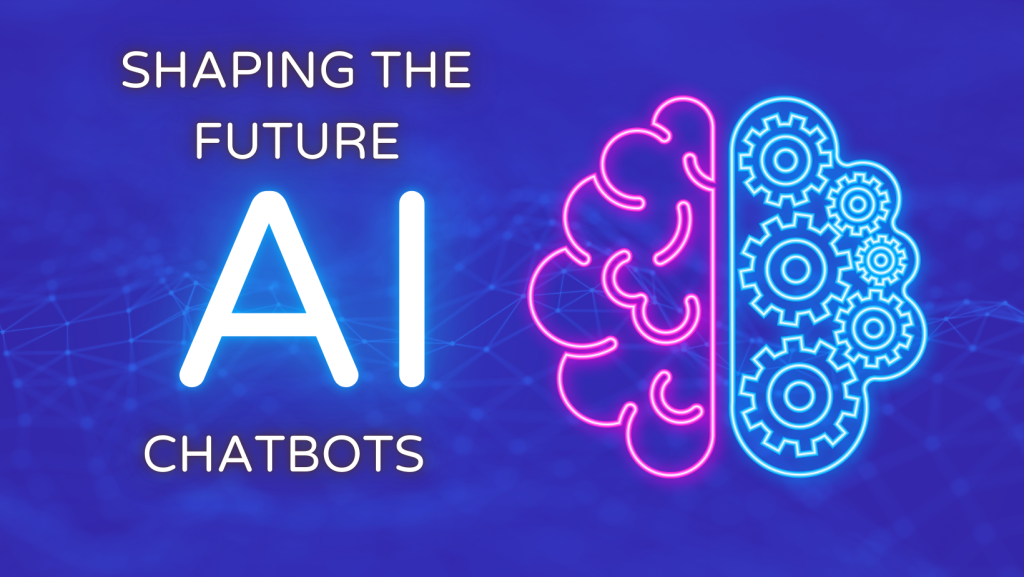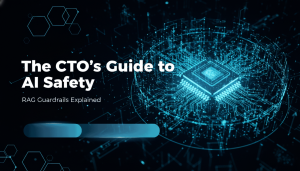Introduction
Artificial intelligence, or AI for short, isn’t just something we see in sci-fi movies anymore. It’s all around us now, making our lives easier in ways big and small. Think about those helpful chatbots that pop up when you need customer service or the self-driving cars on the streets; these are examples of how AI is changing technology right before our eyes. These smart systems are doing wonders across different fields by making things more efficient, convenient, and safe.
In this blog post, we’re going to take a closer look at everything from chatbots to self-driving cars and see how they’re shaking things up in various industries. We’ll talk about what these technologies do, why they’re beneficial, and even touch on some of the bigger questions they raise about society and moral values. By the time you finish reading this post,you’ll get a pretty good idea of how artificial intelligence is transforming tech today and what might come next for these amazing advancements.
Exploring the Spectrum: AI Applications from Chatbots to Autonomous Vehicles
Artificial intelligence, or AI for short, is changing the game in a lot of areas. From making customer service better with AI chatbots to shaking up how we get around with self-driving cars, it’s all over the place. These cool tools use stuff like natural language processing (NLP), really smart learning methods, and digging through data to make things easier for us. Chatbots, such as the best AI chatbots listed in this article, help talk to customers more smoothly, while those futuristic cars are making getting from A to B a whole lot quicker and smarter. Big names like Google and Microsoft are at the forefront of mixing AI into different fields, showing just how much brainy systems can do. The jump from simple chatbots to fully autonomous vehicles marks a huge leap towards letting machines handle tasks and solve complex problems independently. Let’s take a deep dive into the spectrum of AI applications, from chatbots to autonomous vehicles, and see how they are shaping the future of technology.
1. Revolutionary AI Chatbots Enhancing Customer Service
AI chatbots have really changed the game when it comes to helping out customers. These smart helpers are built to talk with people, giving them fast and spot-on answers they’re looking for. Thanks to something called natural language processing (NLP), these AI buddies can get what we’re saying and chat back just like a human would. AI
Deepai is an advanced AI chatbot that offers enhanced knowledge, reduced errors, improved reasoning skills, better verbal fluidity, and overall superior performance. Deepai Pro subscription provides access to Genius Mode which utilizes a larger AI model for even more benefits. Whether for sales and marketing, messaging, tinkering, or just for fun, Deepai Chat is a valuable tool with various applications. chatbots leverage LLMs (large language models) to ingest large open-source or company-owned datasets—including websites, documents, and inventories. The LLM then uses this data to offer conversational responses to chat questions, improve customer experiences, and lower call center costs. The anthropic AI chatbot, Claude, is one of the best in the market for its ability to interpret images and provide accurate responses, and it is now joined by Google’s Gemini Pro, making it even more advanced and efficient.
With AI chatbots on board, businesses can deal with lots of questions all at once without making anyone wait too long. This means folks get the help they need any time of the day or night, which makes them pretty happy and more likely to stick around as loyal customers. Plus, you can tweak these chatbots so they fit perfectly with whatever kind of business you’ve got going on, showing how flexible and useful they are no matter where you put them to work. These chatbots can also be easily shared with a unique URL, making it even easier for businesses to enhance their customer service with AI technology and SEO insights.
When talking about some top-notch AI chatbots out there today, Google’s ChatGPT, OpenAI’s GPT-4, and Facebook‘s version stand out from the crowd. They’ve been fed loads of data so that their replies sound incredibly human-like, making customer interactions smooth sailing.
2. Intelligent Personal Assistants: Navigating Daily Tasks with Ease
Have you ever wanted a personal helper to smoothly take care of your day-to-day stuff? Well, AI-powered intelligent personal assistants are here for just that. Assistants like Siri, Google Assistant, or Amazon Alexa use advanced AI to get and carry out tasks by understanding what we say in our natural language. With connections to different apps and services, they help with things like making reminders, sending texts, or managing smart home gadgets. By using a huge knowledge base and always getting smarter from every interaction, these helpers make our daily life more efficient and convenient, including managing emails through AI-powered features in Gmail. They really show off how amazing AI is at making everyday tasks simpler.
3. Advanced Machine Learning in Healthcare Diagnostics
Machine learning is changing the way we do healthcare diagnostics big time. It’s all about using artificial intelligence to make things more accurate and faster. By using smart algorithms and deep learning, these AI systems can go through tons of medical data to spot patterns and guess what diseases might pop up next. This helps doctors catch illnesses early, come up with treatments that are just right for each person, and figure out how likely someone is to get better or worse. With tools like natural language processing and analyzing lots of data, healthcare workers can give care that’s both super precise and on time. As AI keeps getting better in the health world, we’re looking at a future where diagnosing gets even sharper and taking care of patients improves by leaps.
4. AI-Driven Cybersecurity Solutions for Next-Generation Protection
In the world of keeping our online spaces safe, AI (artificial intelligence) is leading the way by changing how we protect digital stuff. By using AI, these systems get really good at spotting dangers early and dealing with them right away. They use super smart AI to look through tons of data quickly to find anything odd that might mean a security risk is coming. Companies are now using this kind of tech to fight off cyber threats more accurately and faster than ever before, making sure important info stays out of the wrong hands. Putting AI into their game plan for staying safe online isn’t just something cool or new; it’s become essential for fighting against tricky hackers in today’s world where everything is connected online, making things much safer from those looking to cause harm.
5. Autonomous Vehicles: The Road to Future Mobility
The creation of self-driving cars is a big step forward in making our ways to get around better and smarter. By using artificial intelligence and really smart learning systems, these cars can move on their own, leading us towards roads that are safer and trips that don’t take as long. They use clever language understanding methods to make sense of what’s happening around them right away, which helps them fit smoothly into the world. Companies like Google and Tesla are leading this charge, always improving how their self-driving tech works with the goal of changing how we think about getting from one place to another. As we see more of these vehicles on our streets, they’re going to change cityscapes and shake up how we view traveling by car.
6. AI in Finance: Fraud Detection and Personalized Banking
In the world of money matters, artificial intelligence (AI) is super important for keeping things safe and making users happy. AI helps spot fraud really fast, stopping bad guys in their tracks before they can do harm. At the same time, it’s behind those cool personalized banking features that fit what you need like a glove, thanks to smart programs that look at your info and how you behave with your money. These tools make everything smoother and keep customers smiling by putting their needs first. With top-notch data analysis and AI tech, banks are getting better at protecting us from scams while giving us custom-made services we love. As AI keeps getting better in finance, it’s changing the game big time.
7. Smart Agriculture: AI for Precision Farming and Sustainability
Smart farming, using AI, optimizes agriculture by analyzing data from sensors, satellites, and drones to provide farmers with valuable insights. This helps in making informed decisions about watering, nutrients, and pest control. By leveraging NLP for extracting best practices from agricultural texts, AI improves farming practices sustainably. This results in increased food production while reducing environmental impact. The integration of AI in agriculture signifies a significant step towards efficient and eco-friendly food production.
8. AI in Retail: Personalized Shopping Experiences
Artificial intelligence, or AI for short, is changing the way we shop by making it more personal. By looking at what customers like and do, AI can suggest products that are just right for them. This makes shoppers happier and helps stores sell more. Stores use AI chatbots to help people find their way around online shopping easily. These chatbots get what you’re saying thanks to natural language processing and give advice tailored just for you. Big names in tech like Google and Microsoft are leading the charge, creating smart solutions for retail businesses. With these AI helpers, you get ideas on what to buy that hit the mark every time, making your shopping trip better all around. Retailers who jump on this trend see their customers getting more involved and staying loyal because they’re getting a service that’s really meant just for them in the world of retail.
9. The Role of AI in Manufacturing Efficiency
Manufacturers boost efficiency by incorporating AI, which helps prevent breakdowns and streamline operations. Chatbots simplify work communication, enhancing productivity. NLP enables computers to understand human language, facilitating data analysis and providing valuable insights. Embracing AI allows companies to save costs, enhance product quality, and optimize supply chain management effortlessly in the Industry 4.0 era.
10. AI in Education: Customized Learning Paths
By integrating AI into education, learning is personalized to each student’s pace and preferences. AI analyzes data to create engaging study plans that cater to individual needs. Features like natural language processing make educational websites interactive, allowing seamless communication. Educational chatbots like Claude or Jasper, available on platforms like Snapchat, provide personalized tutoring anytime, and can be easily accessed through the App Store or Google App Store. This customized approach ensures every learner receives tailored support and resources for academic success.
The Impact of AI on Society and Ethics
As technology evolves, considering the impact of AI on society and ethics becomes increasingly vital. With AI revolutionizing various industries like retail, manufacturing, and education, it is crucial to address ethical concerns surrounding data privacy, job displacement, and algorithm bias. Society must navigate the ethical implications of AI deployment to ensure fair treatment and accountability in decision-making processes. By fostering discussions on responsible AI development and regulation, we can harness its benefits while mitigating potential risks to create a more equitable future for all. AI’s impact on society is crucial. Questions arise about data privacy, system fairness, and accountability. Addressing issues like biased AI decisions and job displacement is vital for ensuring equitable benefits without compromising privacy or job security. Establishing clear guidelines for responsible AI use fosters trust and sets expectations in the digital age. Tackling these challenges paves the way for an ethical integration of AI into our lives.
Understanding AI Bias and Ethical Implications
AI bias means that AI systems might not always be fair in how they make decisions. Sometimes, this unfairness isn’t on purpose and happens because the data used to teach these AI models come with their own set of societal biases and prejudices.
It’s really important to tackle AI bias so we can have fairness and equity in these systems. To do this, steps need to include using a mix of different kinds of data that truly represent everyone, checking regularly for any bias and fixing it, and having teams from various fields work together to keep ethics in mind.
But ethical concerns with AI aren’t just about bias; they also touch on privacy issues, who is responsible when things go wrong, and making sure everything is clear about how decisions are made. With AIs being able to gather lots of personal information there’s worry over whether people agree with what’s happening with their data or not. Plus since AIs can affect our lives deeply through the choices they make for us or about us there needs to be clarity around those processes.
As technology moves forward it becomes more critical than ever before understanding all the moral questions tied up within its use including ai . By focusing on developing responsibly, we could see great benefits while still sticking closely by principles.
The Future of Employment: AI’s Influence on Job Markets
The rapid advancements in AI are reshaping job landscapes, with automation and machine learning playing key roles. While AI may replace some roles, it also creates new opportunities. Tasks can be done more efficiently across various sectors, such as healthcare where AI-powered chatbots handle basic queries, allowing doctors to focus on complex cases. In manufacturing, AI-driven robots enhance speed and precision. As AI integration expands, there are concerns about job displacement and the need for upskilling to remain relevant. Despite technological changes, human qualities like creativity, critical thinking, and emotional intelligence remain crucial. Continuous learning is essential to adapt to the evolving work environment dominated by AI.
Innovations in AI Technologies
AI is always getting better, bringing us cool new stuff that’s changing how we think about technology. A big deal in this change is natural language processing (NLP). It’s all about helping computers get what we’re saying and talk back to us.
Thanks to NLP, search engines have gotten a lot smarter. They can figure out what you mean by looking at the words and phrases you use, making it easier for you to find exactly what you’re searching for online. This means people are having a much better time finding information because the results they get are way more on point.
On another front, there’s quantum computing which promises to give AI an extra boost. By using the rules of quantum mechanics, these super-powerful computers can do really complicated math super fast. This could make AI even smarter by speeding up how quickly it learns and makes decisions.
With advancements in areas like natural language understanding and quantum computing, our future with AI looks pretty exciting.
Breakthroughs in Natural Language Processing
Natural language processing, or NLP, helps computers understand human language. Advancements in NLP have enhanced search engines for better user experience. NLP algorithms enable search engines to grasp the meaning, context, and sentiment of words and phrases. Consequently, users receive more accurate search results quickly. Search engines now interpret complex questions accurately and provide relevant answers promptly. NLP also benefits customer service using chatbots and virtual assistants for instant interaction. Additionally, NLP aids in translating languages, bridging cultural gaps by converting text seamlessly between languages.
Quantum Computing: Accelerating AI’s Potential
Quantum computers are exciting and can enhance AI. Regular computers use bits, like tiny switches (0 or 1). In contrast, quantum computers use qubits that can be both off and on simultaneously. These qubits follow special rules from quantum mechanics.
Quantum computers calculate quickly due to the ability to be in multiple states at once. This speed can benefit AI, especially in deep learning and data analysis. Deep learning is a method where AI learns from vast data with high computer power requirements.
Quantum computers can accelerate AI learning by processing data swiftly for more precise predictions. In data analysis, they excel at exploring massive datasets efficiently, uncovering patterns normal computers might miss. This efficiency may lead to quicker discoveries across various fields thanks to their speed in processing information.
Conclusion
AI is changing the game in a lot of areas, making things better from customer service with chatbots to improving how we diagnose diseases and protect our online world. It’s also turning the way we get around on its head with self-driving cars and making industries like finance, farming, shops, schools, and factories smarter. But as everything moves so fast, there are worries about AI being biased or not fair and what that means for jobs and how we all get along. On top of this excitement are breakthroughs in understanding natural language just like humans do and using quantum computing to push what AI can do even further. As we move forward into an AI-driven future, it’s really important to think about how it affects society and make sure technology develops in a responsible way.
Contents
Frequently Asked Questions
Most frequent questions and answers
AI has become a big player in the world of technology. It’s being used in lots of different areas like healthcare, finance, making things, and getting from one place to another. With AI, we can automate tasks, analyze data better, and make smarter decisions which helps things run more smoothly and brings new ideas to life. When it comes to doing AI right, there are some key points we should follow: using data carefully and responsibly; always learning and improving; and thinking about what’s fair and right.
Self-driving cars are on the brink of transforming how we get around. They promise to make our trips safer and faster, cut down on traffic jams, and help the environment by reducing pollution. But before they can become common, there are some big hurdles to overcome like making sure laws support them, protecting them from hackers, and thinking about their effects on society and moral issues.
AI has come a long way, but it hasn’t beaten human smarts yet. These systems are really good at certain jobs but don’t have the all-around intelligence humans do. As AI keeps getting better, we need to think about ethics, how fair its data is, and being open about how it works. What’s next for AI isn’t clear-cut.
When we start using AI in important areas like healthcare, finance, and law enforcement, it’s really important to think about the ethical side of things. We need to make sure that privacy is protected, everyone is treated fairly, and everything is clear and open. Some of the best practices are making sure there’s accountability for decisions made by AI, having people oversee what the AI does, and checking on it regularly to avoid any unfairness or negative effects on society.



